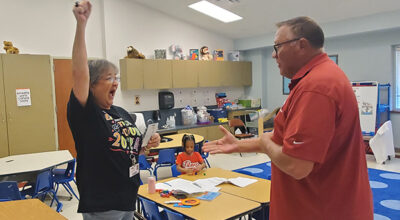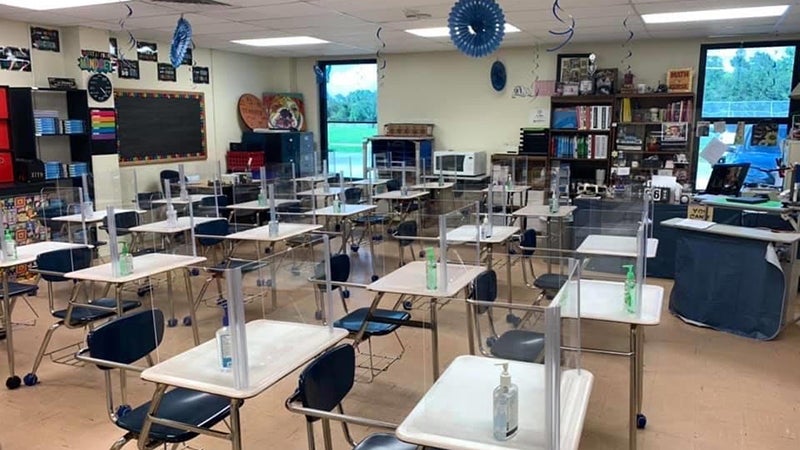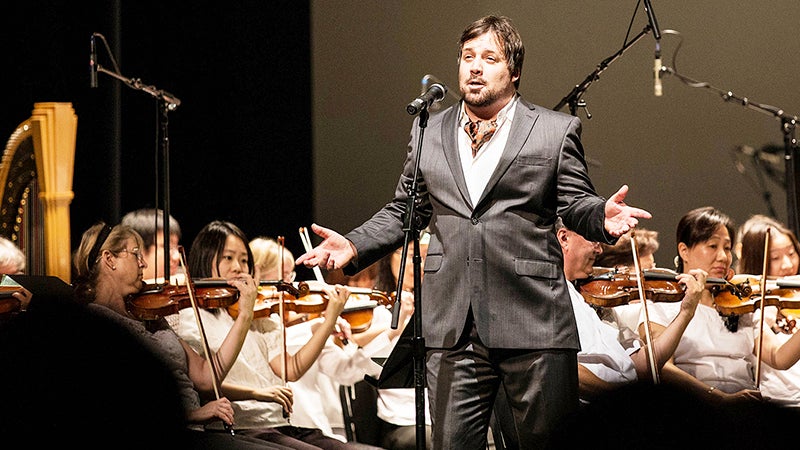Succeeding in reading with people volunteering
Published 5:55 pm Wednesday, March 1, 2017
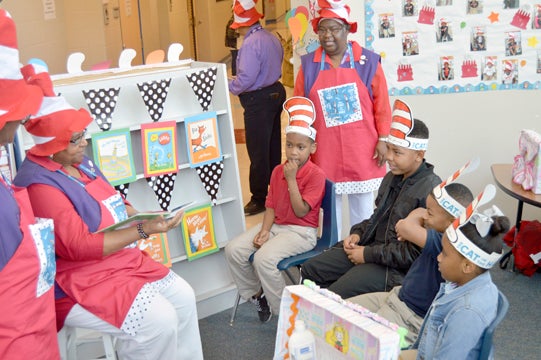
- One of the AARP Experience Corps tutors reads a selection from Dr. Seuss to DeQueen students in “The Nook” room at DeQueen Elementary. (Lorenzo Salinas/The News)
If you were wearing a red and white striped hat with a bright red apron at DeQueen Elementary School, you might have been mistaken for some very friendly and very helpful tutors with the AARP Foundation Experience Corps Wednesday.
“It’s a week celebrating Dr. Seuss and reading activities through our district,” Jerry Gloston, DeQueen principal, said. “With a strong focus on literacy against a backdrop of Dr. Seuss.”
Gloston remarked on the wonderful nature of the Experience Corps, a volunteer-based tutoring program utilizing individuals 50 and older to assist students in acquiring better literacy skills.
“We’ve had teachers wanting to get students in and students asking to get assistance from the ladies in Experience Corps,” Gloston said, of the program’s success.
She approved of the “nurturing” aspect of one-on-one tutorial sessions with students.
“We found in education that small groups individually tutored are the best practices for moving students forward,” Gloston said.
She also praised the program, and in particular the ladies, for developing a good relation with the children.
“They develop a good rapport with students, and even when they’re not teaching them, they check up on the kids because of that rapport,” Gloston said of the tutors.
According to Gloston, the students benefit from such a good rapport in numerous ways, including wanting to do their best and desiring to give good answers to their tutors.
“The relationships are a major part of that.”
Additionally, Gloston highlighted the innovative steps that members of the Experience Corps took in reaching out and educating students.
“They enrich the education experience,” Gloston said. “It’s not traditional book-reading all the time, but they also make things.”
Gloston pointed to a literacy fan that students had in hand, saying it engaged students in more ways than just traditional ones.
“They add in new and innovative ways,” she said.
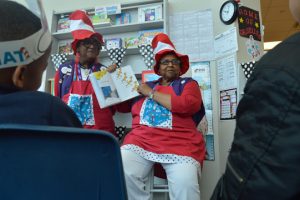
One of the AARP Experience Corps tutors reads a selection from Dr. Seuss to DeQueen students in “The Nook” room at DeQueen Elementary. (Lorenzo Salinas/The News)
Ruby Scott, field coordinator for Experience Corps, has been working with the program for seven years and was adamant about the personal touch of small-group tutoring.
“I think the thing is when you tutor kids one-on-one, you can easily find what their strengths and weaknesses are,” Scott said.
Scott illustrated an example of a girl who could read fluently, but was having an issue with comprehension and reading retention. She said children like her were the ones most at risk of being overlooked.
“In a class of 25 to 30 kids, you can’t help kids who have special problems,” she said.
And as a retired fifth grade teacher of 11 years, Scott would seem to know a thing or two about successfully reaching out to kids.
The Experience Corps are committed to ensuring every child can read by the end of the third grade after all.
“We are excited about the wonderful difference we make in the lives of children,” Scott said.
Even the small stipends they collect for things like gas costs find their way back to the classroom.
“The stipends we receive go toward classroom needs and gifts for the kids. We make sure each Christmas that a child has a gift,” Scott said.
Barbara Bryant has been with the Experience Corps for six to seven years. She, too, has had previous education experience as a kindergarten teacher for 14 years. She is also the Corps team leader for DeQueen.
“I just enjoy working with kids,” she said.
Bryant commented on the excitement the kids displayed, usually questioning where their tutors are when they are off.
“They’re excited. If I’m gone or on vacation, they’ll come up to me next day and say, ‘You’re not supposed to be absent!’ You’ve got to be excited about teaching,” Bryant said. “It goes over to them.”
Sherold Alpough has been with the Experience Corps for two years and was an employee for the City of Port Arthur for 30 years prior to that.
When asked what inspired her to join, Alpough took a moment to answer.
“Our children,” she said. “I decided to help our children.”
Alpough said, “The thing about it is when we get these kids, they think they’re having problems with reading and learning; but, a lot of if is shyness and getting that (shyness) out of them.”
Alpough said much of the work came from getting the students to open up and not be afraid to learn and respond.
“It’s great because it gets children’s attention in the one area they need most.”
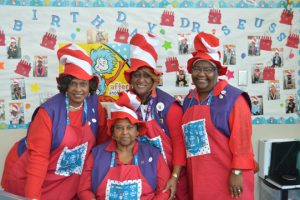
(From left) Sherold Alpough, Margaret Foreman, Barbara Bryant and Jodie Scott are some of the members of the AARP Experience Corps that tutor children in literacy skills. (Lorenzo Salinas/The News)


